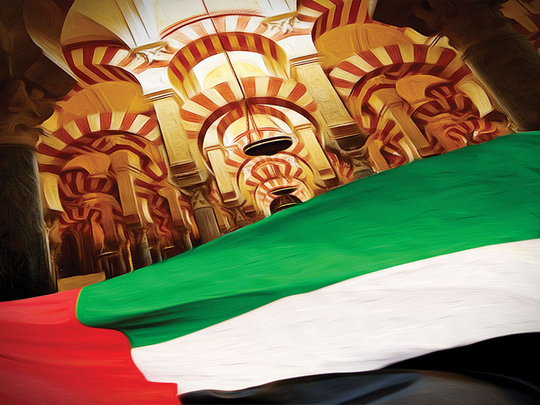
In the mid-eighth century, the exiled Umayyad prince Abdul Rahman Al Dakhil fled to the Iberian Peninsula following the fall of the Umayyad empire in the East. He ousted the then ruling Fihrids and established himself as the Emir of Cordoba, and thus started the golden age of Al Andalus (most of modern-day Spain and Portugal).
Over the years, Andalusia became a shining beacon of prosperity and advancement in medieval Europe. It was a major economic and agricultural hub. Crops were grown using irrigation, along with food imported from the Middle East. This provided the area around Cordoba and some other Andalusian cities with an agricultural economic sector that was the most advanced in Europe at the time.
More importantly, it was the intellectual centre of the West, where libraries and research institutions grew rapidly and literacy was far more widespread than in many other western nations at the time. The ruling Umayyads of Al Andalus wanted to be seen as intellectual rivals to the Abbasids and for Cordoba to have libraries and educational institutions to rival Baghdad’s. Muslims and non-Muslims often came from abroad to study in the famous universities of Al Andalus. Muslim Iberia was a channel for the transfer of culture and science between the Islamic and Christian worlds — all while the rest of Europe was engulfed in war, disease and ignorance.
Many tribes, religions and races coexisted in Al Andalus, each contributing to its intellectual prosperity. The Jewish golden age for, example, happened to coincide with the period of Muslim rule in the Iberian Peninsula. Al Andalus was a key centre of Jewish life during the early Middle Ages, producing important scholars and one of the most stable and wealthy Jewish communities. Jews took part in the overall prosperity of Muslim Al Andalus. In Toledo, Jews were involved in translating Arabic texts to the Romance languages, as well as translating Greek and Hebrew texts into Arabic.
Like any great power, the Umayyad rule in Iberia eventually came to an end. With the weakening of the Caliphate in Cordoba, Al Andalus was divided and parts of it fell prey to the aggressive Muslim extremist Al Moravids who destroyed many of the Umayyad cities because of their belief that the Muslims of Spain had strayed and needed to be brought back to the “righteous path”. The other parts of Al Andalus were conquered by neighbouring Christian powers, which eventually seized control of the entire Iberian peninsula. Muslims, Jews and people of other faiths living in Al Andalus found life under Christian rule unbearable; they were killed, enslaved, expelled or forced to convert to Christianity.
Al Andalus is a great testament to how diversity and tolerance, going hand-in-hand, can create a civilisation with long-lasting legacies and can produce unprecedented advancements for the human race. While the story of Al Andalus is most fascinating, the purpose of this brief historical account of Muslim rule in Iberia is to draw lessons that are applicable to our world today. One cannot help but notice that the Middle East and North Africa today mirror to a great degree the majority of Europe in the Dark Ages. Torn by civil war, sectarianism, corruption, poverty and disease, the Middle East and North Africa today inspire very little hope for the 100 million youth living in the region.
Lessons to learn from rise and fall
Yet in the midst of this darkness, the UAE, just like Al Andalus, emerges as the land of opportunity, tolerance and pluralism, giving people from within the region and the rest of the world a chance to build a more dignified life. The UAE is home to hundreds of nationalities and various religions and sects, each free to practise their religious beliefs so long as they do not attack or undermine the other. It has also become a target for constant criticism by extremists for that very reason. Most recently the UAE came under attack after having announced allocation of a plot in the capital Abu Dhabi for the construction of a Hindu temple to serve the Hindu population of the country (which makes up 25 per cent of the population).
There are many lessons to be learned from the rise and fall of Al Andalus; but the most significant and most relevant for our time is that extremism is not specific to a place, time or religion. It is an ugly truth that has long plagued nations and caused the fall of the most powerful of civilisations. The irony in the story of Al Andalus is that though extremists of any ideology preach a return to “fundamentals” of a sort as a way back to glory, what history has taught us time and again is that extremism, when it prevails and finds echoes to its calls, is a dangerous indicator for the fall of a nation. Luckily, the UAE stands strong against the preachers of discrimination and intolerance, with an unwavering conviction that pluralism is the very foundation that built this country.
— Maria Hanif is an Emirati writer from Dubai.You can follow her on www.Twitter.com/maria_hanif









